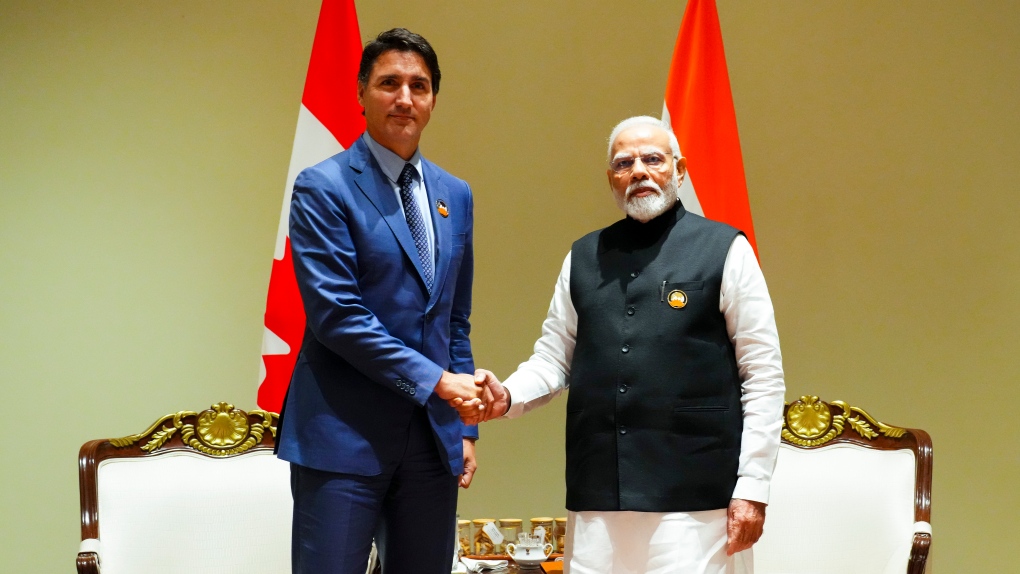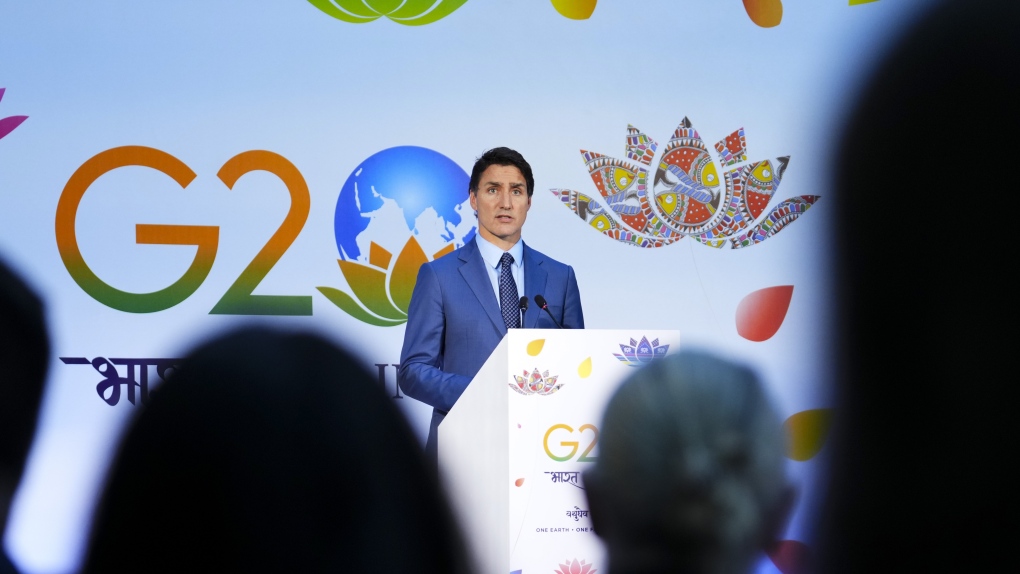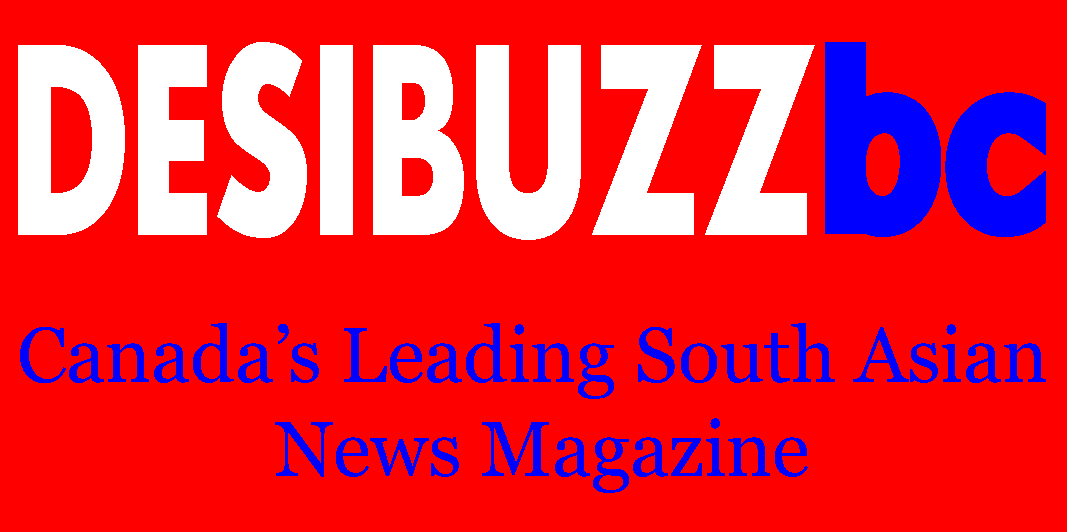DESIBUZZCanada
Events Listings

International Day Of Yoga To Be Virtually Celebrated Saturday At 4pm

CANCELLED: Coronavirus Fears Kills Surrey’s Vaisakhi Day Parade

ADVERTISE WITH US: DESIBUZZCanada Is The Most Read South Asian Publication Online

SURREY LIBRARIES: Get Technology Help At Surrey Libraries

WALLY OPPAL: Surrey Police Transition Update On Feb. 26

GONE ARE THE DAYS - Feature Documentary Trailer

Technology Help At Surrey Libraries

Birding Walks

Plea Poetry/short Story : Youth Contest

International Folk Dancing Drop-in Sessions
Trudeau Tells Modi To Respect Democracy And Peaceful Protests And Stop Interfering In Canada At G20 Summit In Delhi
- September 13, 2023

Prime Minister Justin Trudeau received more frosty reception and cold shoulders and criticism from the usual anti-Sikh elements after he brought up foreign interference by India with his meeting with India’s PM Narendra Modi at the G20 summit in New Delhi. Trudeau also told the media that India needs to respect democracy and peaceful protests and right of citizens to assert their rights as in the case of the vote on Khalistan referendum as it is allowed in proper world democracies like Canada but obviously not in India which only is democracy by name. Coincidentally, the Khalistan referendum was held in Surrey on Sunday which brought out more than 135,000 Sikhs to vote for an independent Sikh homeland called Khalistan.
NEW DELHI - Prime Minister Justin Trudeau received more frosty reception and cold shoulders and criticism from the usual anti-Sikh elements after he brought up foreign interference by India with his meeting with India’s PM Narendra Modi at the G20 summit in New Delhi.
Trudeau also told the media that India needs to respect democracy and peaceful protests and right of citizens to assert their rights as in the case of the vote on Khalistan referendum as it is allowed in proper world democracies like Canada but obviously not in India which only is democracy by name.
Coincidentally, the Khalistan referendum was held in Surrey on Sunday which brought out more than 135,000 Sikhs to vote for an independent Sikh homeland called Khalistan.
Before leaving for the G20 summit, Trudeau told the media he would bring up the issue of India’s foreign interference in Canada.
“As always, we will emphasize how important the rule of law is,” Trudeau said Friday at a news conference in Singapore when asked what he would say to Modi about allegations that India has engaged in foreign meddling, including in relation to the large Sikh population in Canada.

Trudeau, whose Liberal government announced a public inquiry into allegations of foreign interference on Thursday, went on to say that China is not the only country deserving of scrutiny.
“It is incredibly important that we continue to protect Canadians from any and all types of interference,” Trudeau said Friday morning.
“One of the things we’re focused on in this inquiry is recognizing, yes, China and Russia are responsible for interference, but other countries engage in it as well,” he said, adding the commission “will go where the facts bring them.”
Trudeau’s national security adviser Jody Thomas said earlier this year that India, a democratic country the Liberals highlighted in their Indo-Pacific strategy as a priority for establishing closer ties, was among the top sources of foreign interference in Canada.

New Delhi has previously argued that elements in Canada have been behind interference in domestic affairs in India, including in relation to the Khalistani separatist movement, which advocates for part of the Indian state of Punjab to become an independent country.
The Indian government perceives this as an extremist movement that endangers national security and has long accused Canada of harbouring extremists. Ottawa has maintained that freedom of speech means groups can voice political opinions so long as they are not violent.
Tensions increased in June after the fatal shooting of a Surrey Gurdwara president Hardeep Singh Nijjar, whose murder Sikhs blame on Indian government agencies as a political assassination in Canada.
Trudeau’s trip also came as Canada has paused ongoing negotiations for a trade agreement with India.

Earlier this week, federal Trade Minister Mary Ng said the pause is only “a reflection to take stock of where we are.”
On Friday, Trudeau said he had nothing to add.
India's envoy to Canada recently revealed that Ottawa asked for a pause "within the last month." The envoy did not elaborate on why and neither will the international trade minister or prime minister.
“Trade agreements are complex and there are many things that go into that,” Ng told reporters in Indonesia on Tuesday. “All we are doing at this point is taking a reflection to take stock of where we are.”
Canada and India first launched talks for a comprehensive trade deal in 2010, but those plans were abandoned in 2017. Since 2022, the two countries have instead been engaged in talks about a Comprehensive Economic Partnership Agreement that would be restricted to certain industries.
























